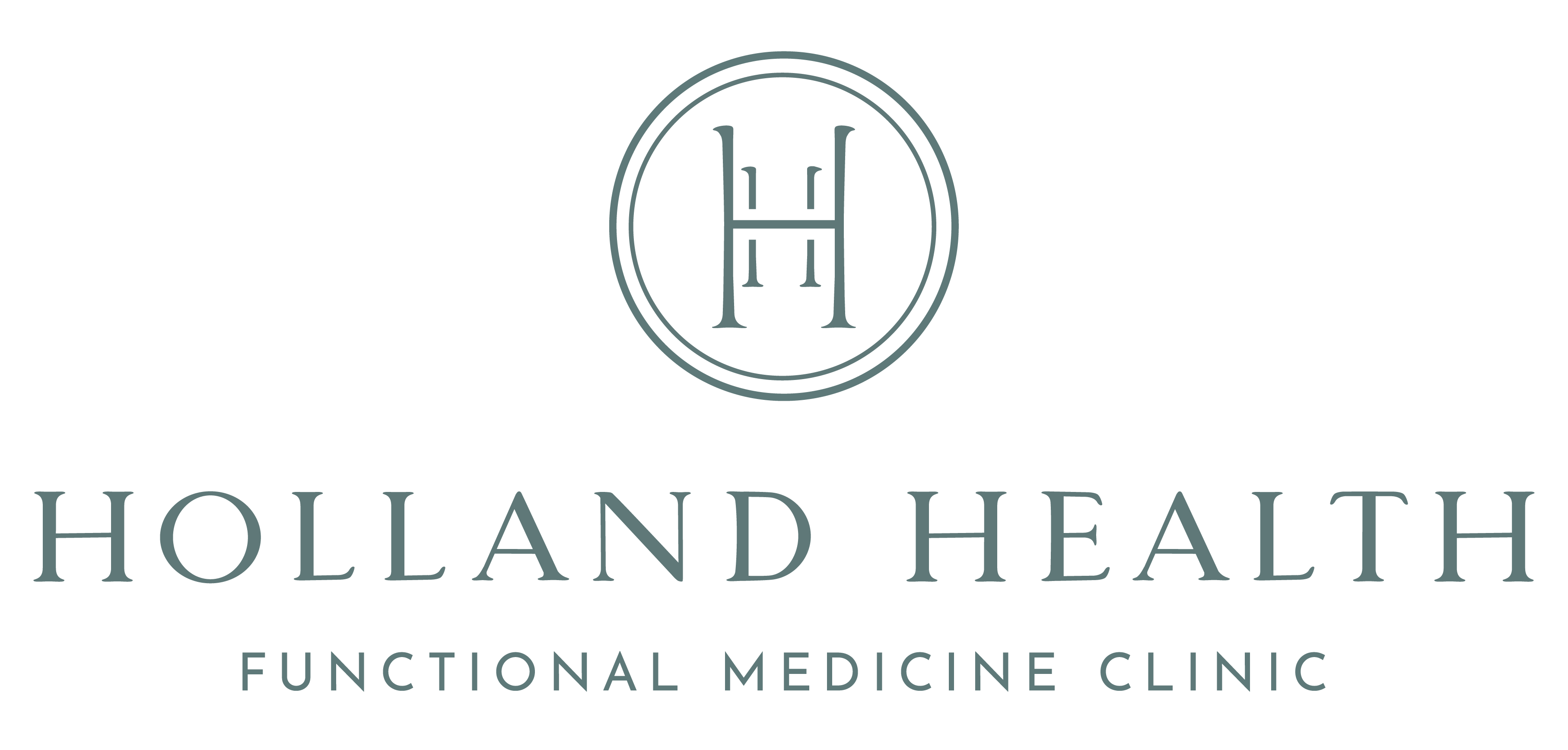Let there be light
This summer, we had our 2nd Holland Health event, and the topic was “light.” And by light, I mean ultraviolet to infrared light… and everything in between! When it comes to sunlight, most of us just think of UV rays and not all of the other wavelengths. But look how beautiful the whole spectrum is!
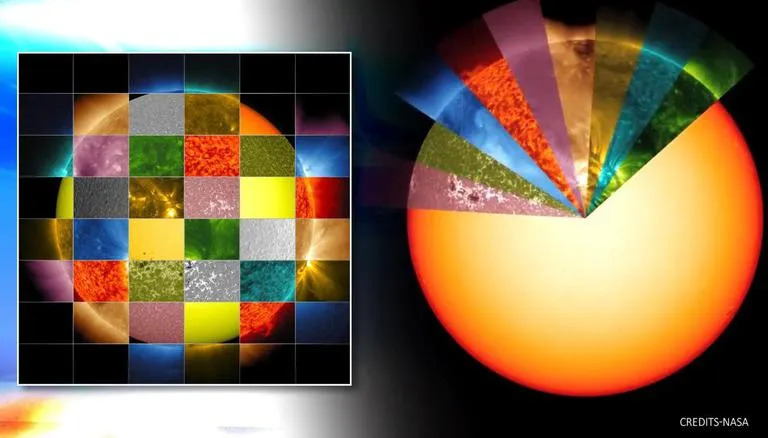
“The sun emits light in all colours, but since yellow is the brightest wavelength from the sun, that is the colour we see with our naked eye — which the camera represents since one should never look directly at the sun. When all the visible colours are summed together, scientists call this white light,” NASA said.
Sadly, many people today are terrified of the sun. The truth is, we don’t need to hide from it, we need a balance of it! Knowing when and how to expose yourself to the sun and when to block yourself from it are key. That is why Dr. Holland and our team are on a mission to educate you on some various wavelengths of light and how to get the most health benefits out of them!
“There isn’t one thing that has caused the explosion of chronic disease, autoimmune disease, cancer, heart disease and obesity. But one thing all of these have in common is lack of light. Light is quite impactful in our overall health and wellbeing.” Dr. Shane Holland
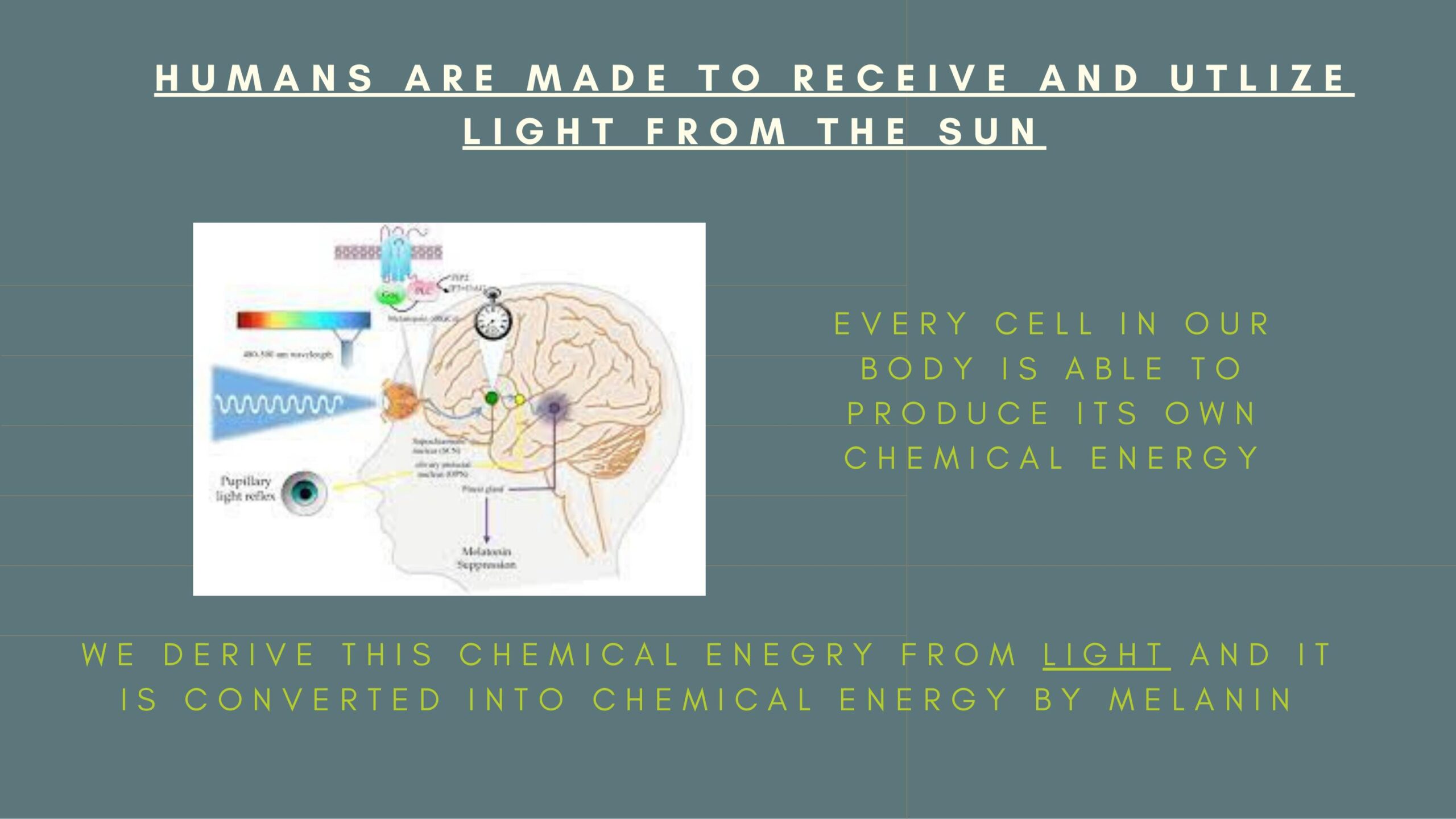
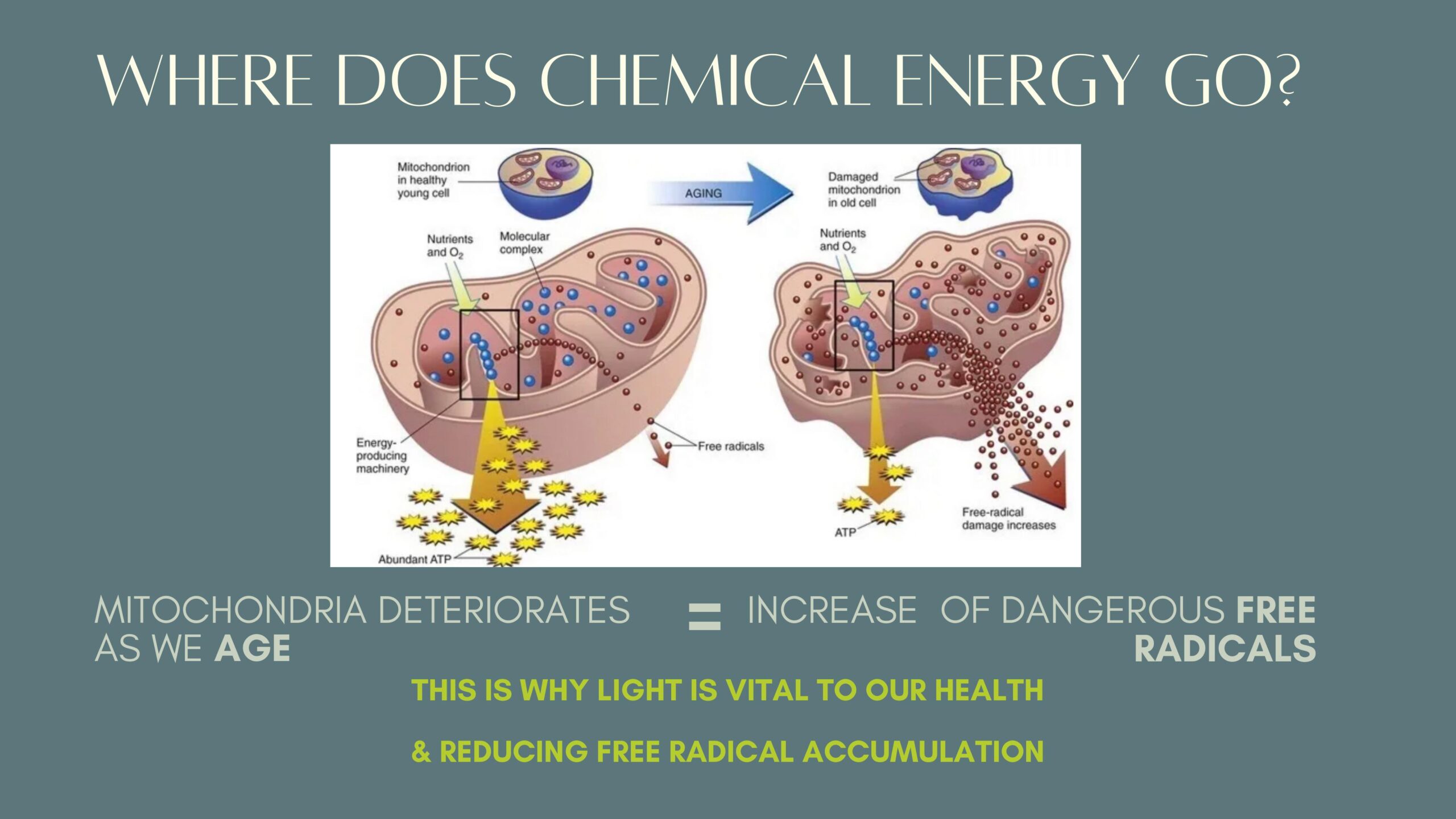
I love that God not only created us and the sun, He also gave our bodies the ability to use what it needs from the sun! And that includes so much more than the wonderful Vitamin D that we all know and love. There are 3 ways our bodies take in light… via our eyes, skin and cells.
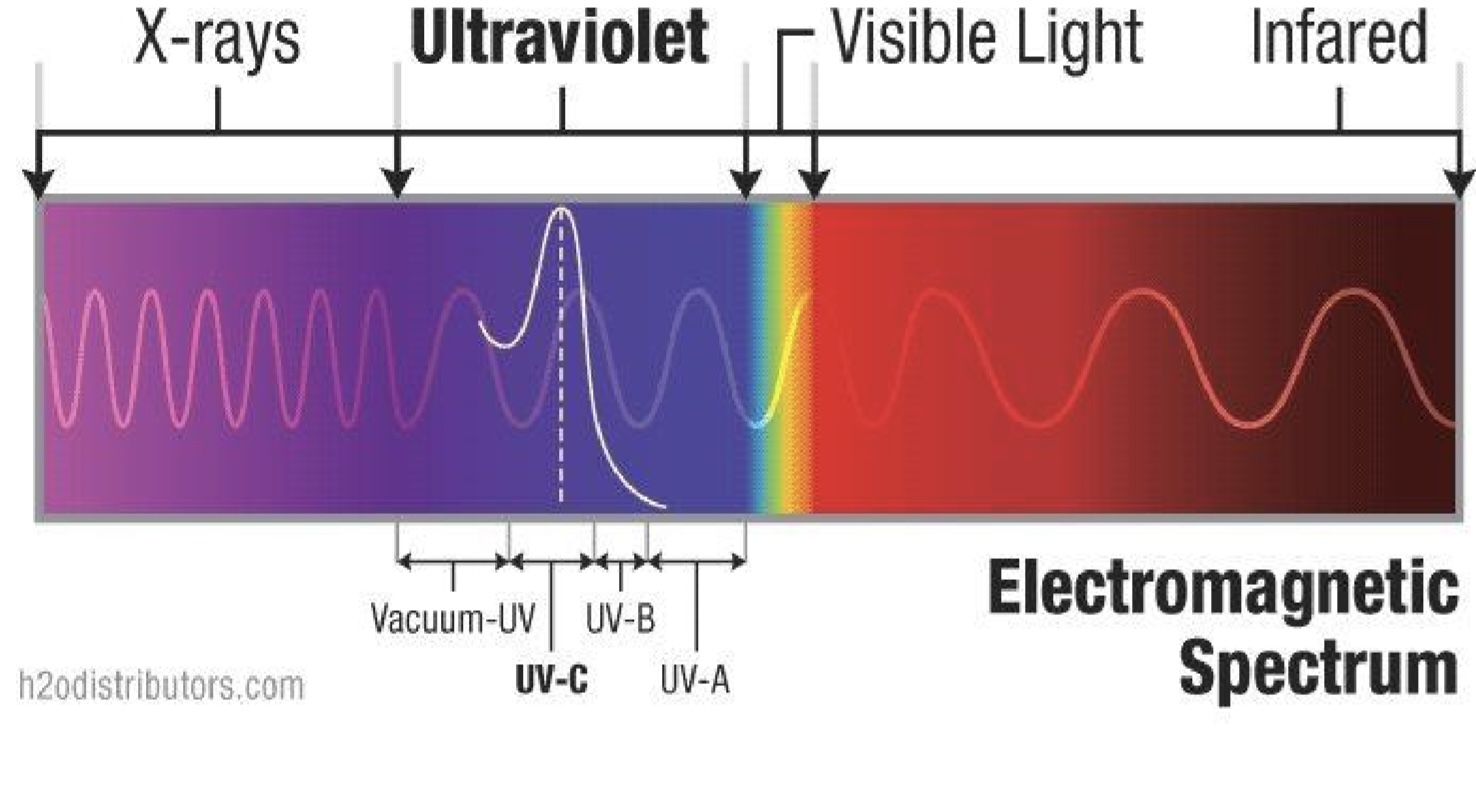
Fun fact: When you see a rainbow, you are seeing the visible spectrum of light (red, orange, yellow, green, blue, indigo, violet) bouncing off of water droplets!
UV LIGHT
The first wavelength we covered at the event is ultraviolet light, which is on the spectrum between x-rays and visible light (blue, green, yellow & red). It has the shortest wavelengths of all the types of light we will cover today. Although UV rays get a bad rap for the fact that they can cause sun damage and wrinkles, they actually offer quite a lot of positives as well.
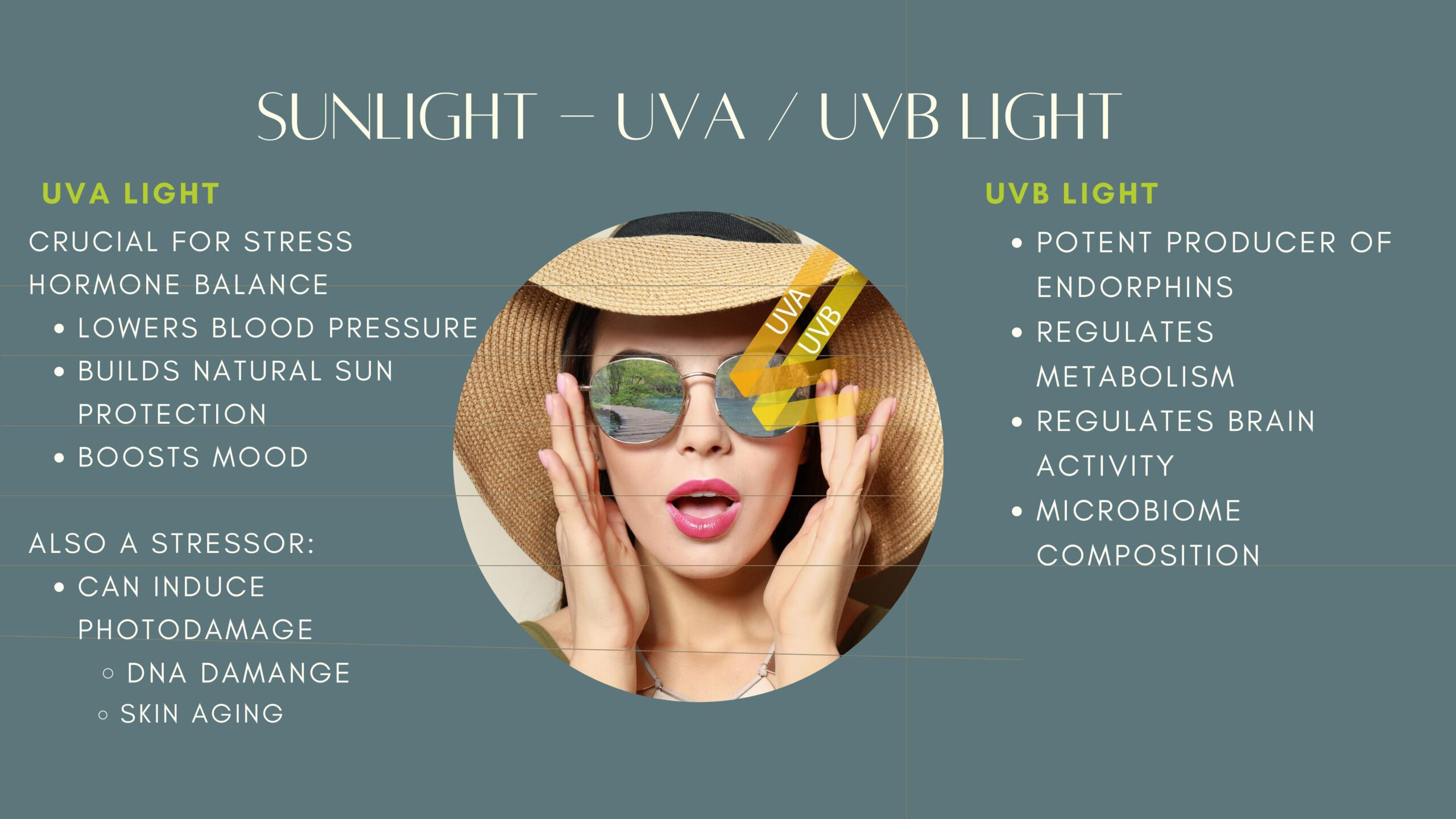
The key is to balance UV exposure with protective red and infrared light. This builds up something called a “solar callus.” You can do this by spending time outside in the morning between sunrise and 10 a.m. and between 4 p.m. and sunset. Those are the times when UV light is the lowest and when red and infrared light are the highest.
That said, it is still good to expose yourself to some UV light in the middle of the day! Dr. Holland recommends 1-5 minutes several times a day during the hours of 10 a.m. and 4 p.m. Both UVA and UVB provide numerous benefits to your health, as seen on the image above. This also includes vitamin D! So if you are out running errands, walking to the mailbox, taking a break at work…or anything else where you are not out long enough to burn, show as much skin as you can and soak it in!
But if you are spending an extended amount of time outside between 10 a.m. and 4 p.m., that is when it is good to wear protective clothing and be in the shade. Try to only wear sunscreen if absolutely necessary… like if shade is not an option. This is because so many sunscreens do contain harmful chemicals. (See my previous blog post on sunscreen for some good options). Link here. Omega 3 fatty acids (like fish oil) are also sun protective!
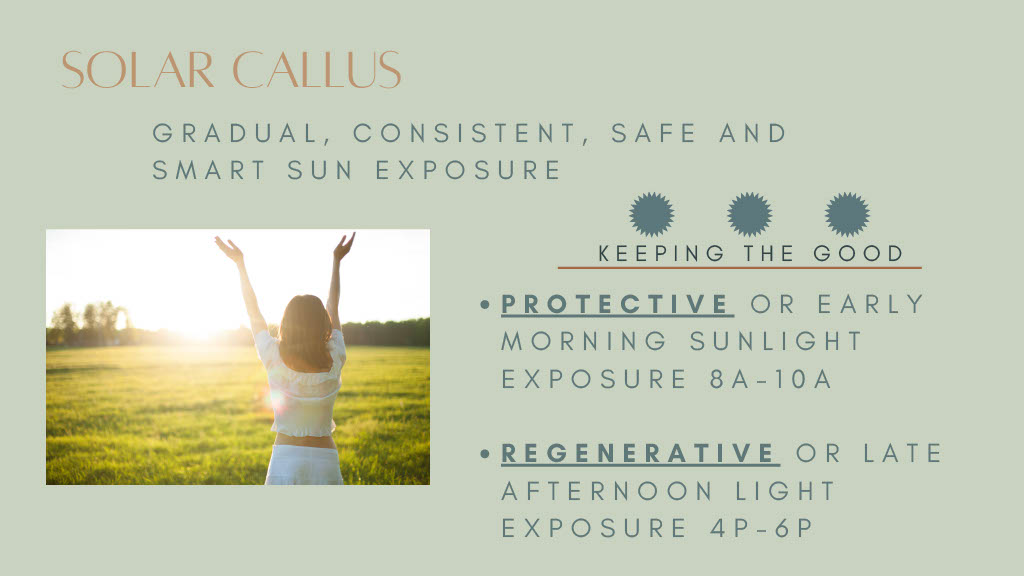
BLUE LIGHT
Like UV, blue wavelengths are very short, so they only reach the outer layers of the skin and do not permeate very deep. Blue light is antibacterial and can be an alternative to antibiotics for some skin conditions. The most common use for blue light is treating acne. Other uses include treating eczema, psoriasis and hair loss.
Humans have always been exposed to some blue light from the sun. The problem with blue light, much like UV light, comes from getting too much of it at the wrong time. And that is because of the digital age in which we live. Our electronic devices emit blue light, and spending time on them in the evening after the sun goes down tricks our bodies into thinking it is still daytime. It also suppresses the production of melatonin, which is the hormone that helps you sleep.
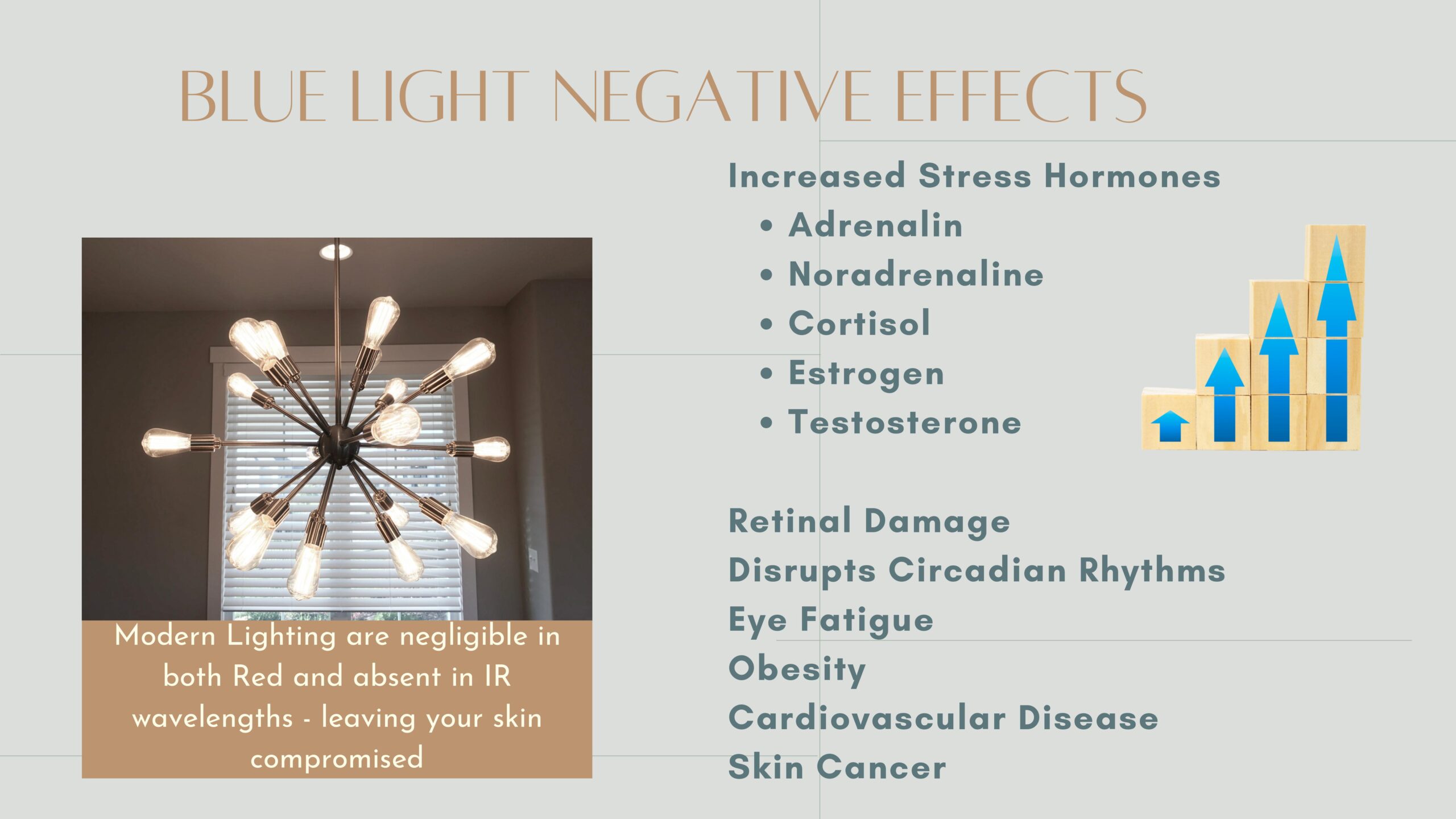
Your best bet is to stay off electronics after the sun goes down, if possible! I know this is really hard. If you do need to watch t.v. or be on your phone or computer, Dr. Holland recommends investing in some blue light blocking glasses to wear. This is the brand he likes. Most phones and computers also have a “night mode” you can turn on. Set it to turn on around sunset and it will make your screen more warm colored and hopefully produce less eye strain.
GREEN LIGHT
Green light therapy has a wide variety of potential uses based on research being done on its contributions to better sleep, pain relief, improving depression, migraine relief and skin improvements (especially hyperpigmentation). The color green is known to have a calming effect. This is why sometimes when we are stressed, it can be very helpful to spend some time in nature!
I had no idea, but they actually make green light therapy devices. Here is one option.
Another use for green light is the Emerald fat loss laser, which we actually have at Holland Health! Some of the benefits are:
- Preserves Lean Body Mass
- Decreases Total Lipid LDL
- Stimulates collagen production
- Safe for all skin types
- Can be placed over implants
- Painless
- Patients lose 6′ on average
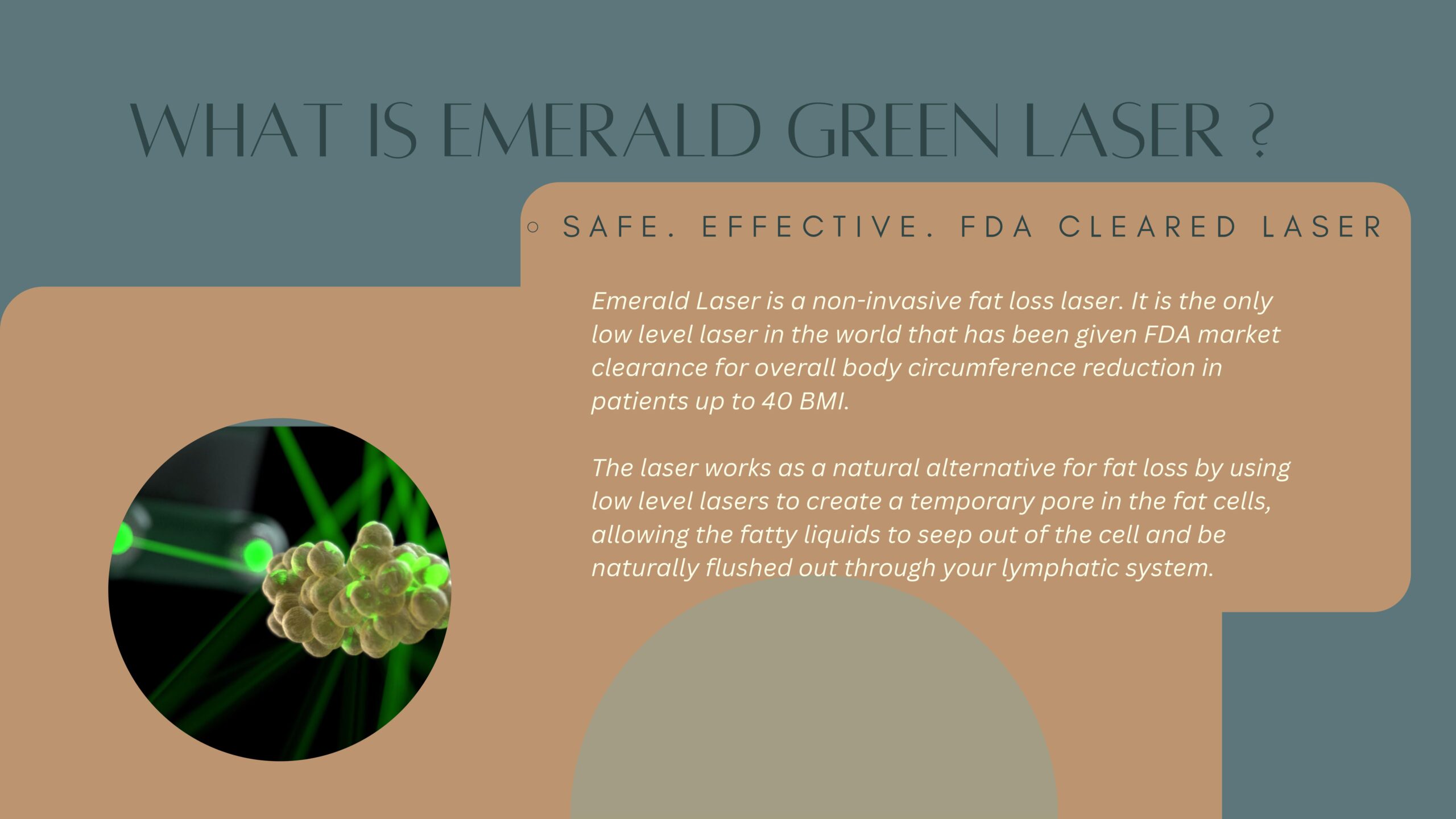
RED LIGHT
Next up is red light. I am such a big fan, I already wrote a complete blog post on it earlier this year! You can find that by clicking here. As we move down the spectrum, the wavelengths go deeper, which means more potential benefits!
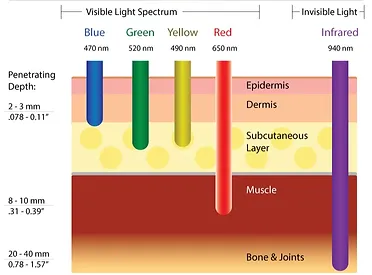
Please know that not all red light therapy devices are created equally. The top of the line Platinum LED one we have at our office is a combination of red and infrared light, which is ideal!
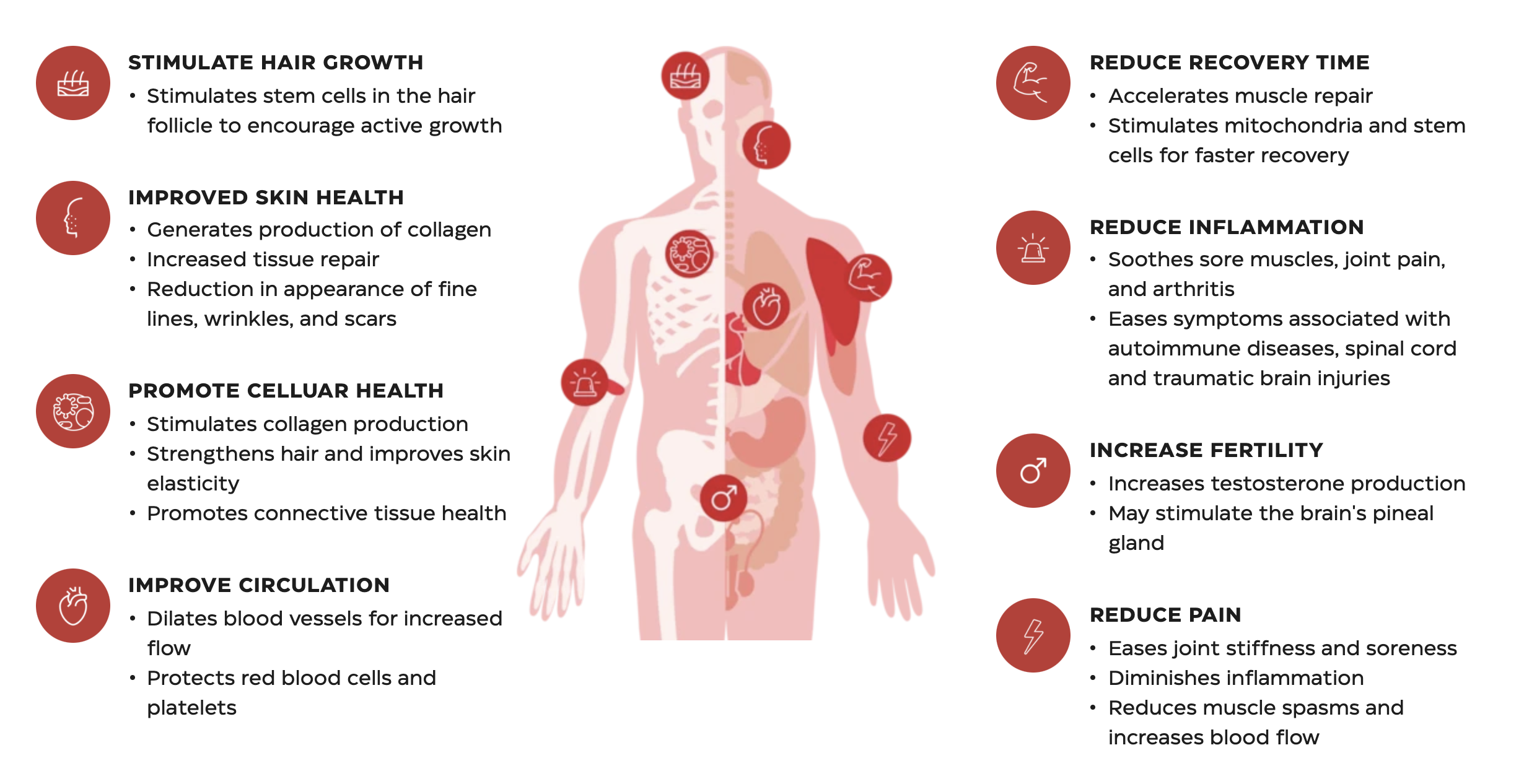
INFRARED LIGHT
Infrared waves are the next part of the electromagnetic spectrum we will cover. Just like the others, we encounter infrared every day from the sun. It is a type of radiant energy that’s invisible to human eyes, but that we can feel as heat, like warmth from the sun. It has the longest wavelengths of all the types of light we are covering today.
When cells are exposed to infrared waves, cytochrome C oxidase, a protein in the mitochondria becomes activated. This allows energy (ATP) to form rapidly… leading to many beneficial effects of infrared exposure, such as:
- Increased blood flow
- Reduction in pain
- Improved cognitive function
- Increased hair growth
- Skin rejuvenation
- Anti-tumor action
- Make cells younger by decreasing oxidative stress and increasing ATP (energy)
- Protective effect on vision and eye health
- Enhanced wound healing
- Promote detoxification
- Improve sleep
Infrared and red light have similar effects, but infrared wavelengths can go a little deeper. Many times you will see the two combined in therapy devices. That is the case with the one we have at Holland Health! Infrared saunas are also a common way to receive the benefits of this light. Unlike traditional saunas, which heat the air around you, infrared saunas heat your body from the inside out.
In closing, as you consider all of this content and how you are going to apply it to your life, remember synergy! In health coaching and functional medicine, we are big on doing things together to maximize benefits and save precious time! For example, as you are out on the patio getting your morning sun, you could also pray, meditate, exercise, etc. And I often encourage my coaching clients to think about ways they can involve their family members in their health goals, too. That is a very synergistic thing to do!

“God saw that the light was good…” If you have been taking the wonderful gift of the sun for granted, like I did for a long time, I hope this information shifts your perspective. Let there be light in your life!

Reviewed by Dr. Shane Holland, D.O.
Although I am a nurse by trade, I am not a doctor or an expert, and the information I provide on this blog is for educational purposes only. Each person is unique and their needs and circumstances vary, so I always recommend that you consult your medical provider before making any changes.
